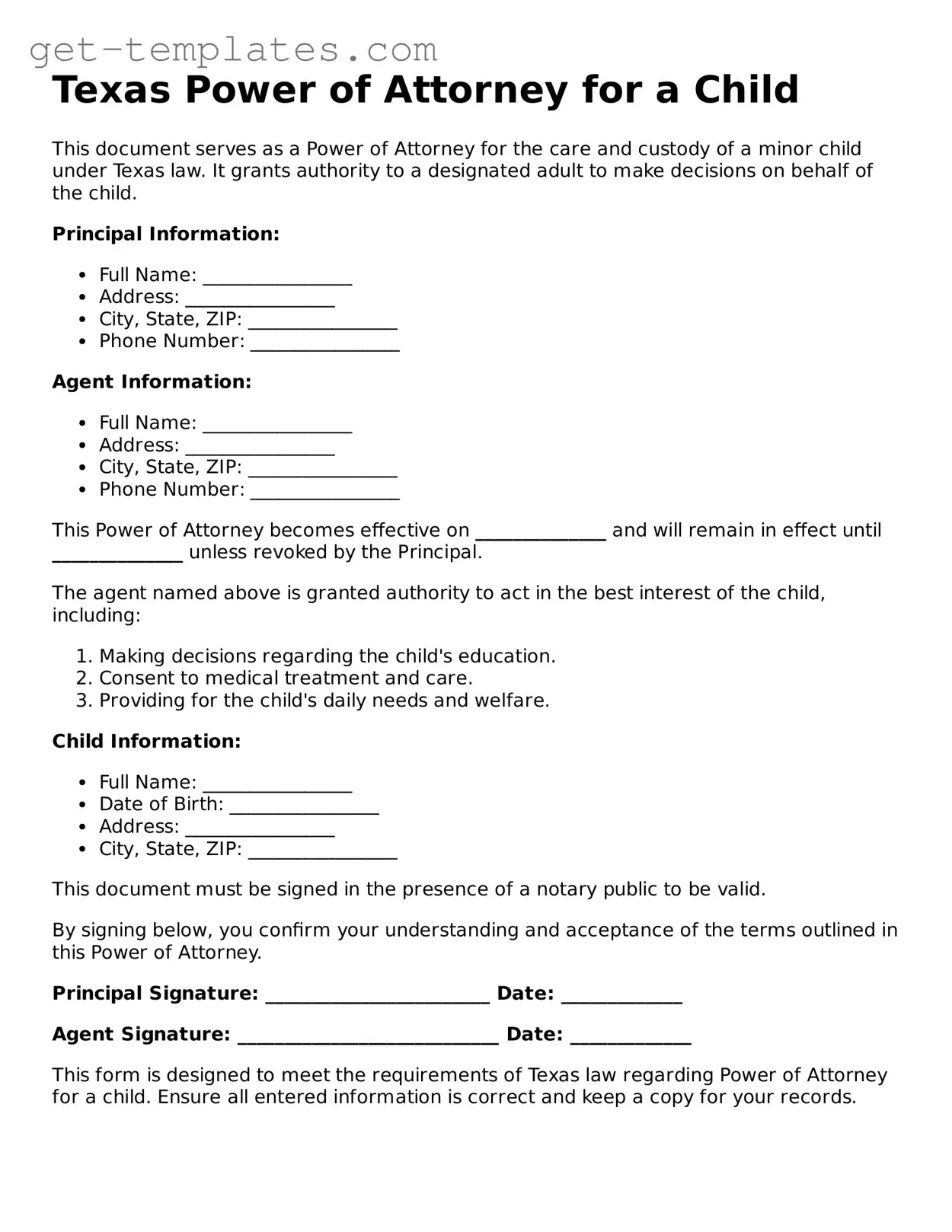Attorney-Approved Power of Attorney for a Child Document for Texas
The Texas Power of Attorney for a Child form is a legal document that allows a parent or guardian to designate another adult to make decisions on behalf of their child. This form is particularly useful in situations where the parent is unavailable, such as during travel or temporary relocation. By granting this authority, the child's well-being and care can be managed effectively by a trusted individual.
Get Document Online

Attorney-Approved Power of Attorney for a Child Document for Texas
Get Document Online
You’re halfway through — finish the form
Finish Power of Attorney for a Child online — edit, save, download made easy.
Get Document Online
or
⇓ PDF Form
